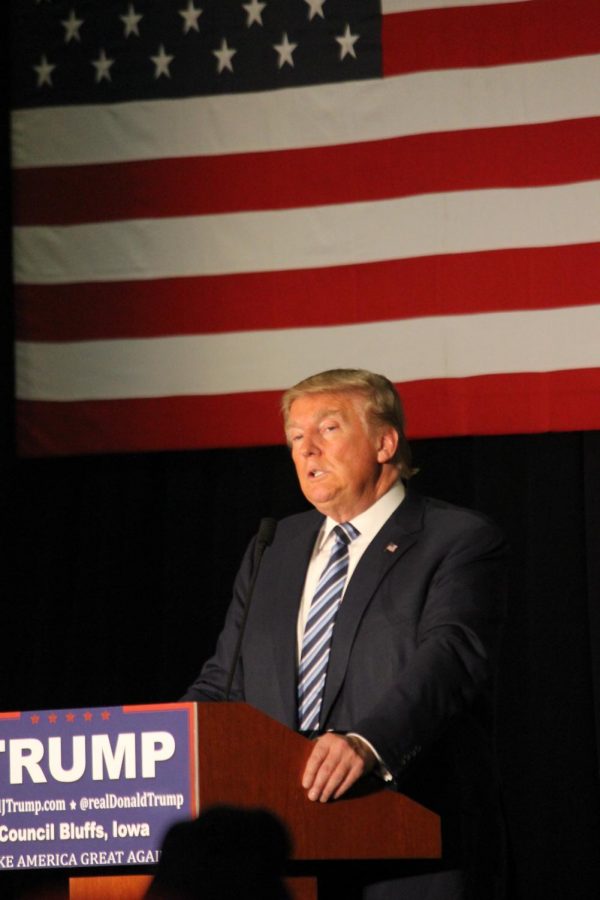Woodward Tapes Pose Questions of Journalistic Integrity
When Bob Woodward and his colleague Carl Bernstein investigated and uncovered the Watergate scandal for the Washington Post, they set an example for generations of journalists to come. Woodward and Bernstein proved that, through tireless investigative efforts and determination to uncover the truth, journalists can deliver stories to the public that change the course of history.
However, the ethics of journalism are not set in stone. There are unwritten rules, but it is up to a reporter to decide what to include in a story and what to leave out. Journalists, in many cases, get to choose what is and is not worth printing.
This week, Bob Woodward revealed that President Donald Trump admitted that COVID-19 was “deadly” in an interview in February, a stark contrast to how the president was talking about the virus in public at the time.
The president also admitted in another interview with Woodward in March that he had purposely downplayed the threat of COVID-19 posed to the United States.
Woodward revealed this information ahead of the release of his newest book “Rage,” his second book focused on Trump. News outlets latched onto these revelations on Trump’s coronavirus response, especially a brief audio recording obtained by CNN in which Trump admits to downplaying the danger of the virus because he did not “want to create a panic.”
But while this new information is important and appreciated by Americans who want to know when the president has purposely misled them, many Americans do not understand why Woodward did not tell the public sooner.
Woodward told The Washington Post that he did not publish these interviews right away because he could not verify the information Trump gave him until months later. He also said he felt his responsibility was to deliver a more “big picture” story to readers rather than daily stories. Woodward is now primarily focused on writing books rather than traditional journalism, according to The Washington Post.
Some commentators have argued that Woodward’s defense is flimsy at best. Samuel G. Freedman argued in a piece for The Chicago Sun-Times that Woodward’s self-defense that he needed to wait to verify the president’s statements “does not suffice.”
Dr. Seema Yasmin said on CNN that Woodward should have given his information to reporters who could have helped him verify Trump’s words much more quickly, allowing the public to learn about the president’s deception sooner.
Scott Nover, a reporter for Adweek, tweeted, “These interviews about COVID-19 were done in February and March. Why are we learning about it in a book published in September? Isn’t there a journalistic imperative to publish this information in a timely manner…especially during a pandemic?”
However, to imply that Bob Woodward is partly responsible for the lives lost this year is not totally fair. There is room for doubt that releasing these interviews with Trump in the spring could have, realistically, prevented the ultimate death toll of the virus.
As Susan B. Glasser wrote for The New Yorker, “Does anyone seriously believe that, had Woodward published an article based on his February phone call with the President, Trump would have chosen any different course of action toward the pandemic?”
Perhaps not, but political pressure from both his opponents and allies, once aware of his confessions in the Woodward interviews, might have forced the president’s hand to take more serious action. In the early days of the pandemic, there was still time to create and enforce policies that would have saved lives.
If the American people had known for certain that Trump was lying about the danger of the virus, could they have put the necessary pressure on the White House to take a more aggressive approach in combating COVID-19? Would this knowledge have saved lives?
Of course, we’ll never know the answers to these questions. And, as Glasser points out, it is possible that even if Woodward had published his interviews with Trump as soon as they occurred, the information might not have made a difference.
Still, it is necessary to hold our journalists accountable in the same way we hold politicians accountable. Bob Woodward discovered that Trump was lying about the danger of a virus that has created a global public health crisis. He chose to wait until months later to tell the public. Is America okay with this decision?
Americans, especially those of us who work in news media or hope to one day, need to be willing to have a nuanced conversation about what the role of journalists in our society should be. It is possible to both admire Woodward’s skillful reporting and still criticize him for waiting so long to reveal his finding to the public. As a country, we have to be willing to do both.
The Woodward interviews have all the components of a great story, the kind journalists love to report. It involves a public official misleading the public and admitting it on tape and relates to the biggest news event of the year, the coronavirus pandemic.
The only thing that would have improved it is a publication in March, months before the presidential election and before almost 200,000 Americans had died from COVID-19.
Columnist Kathleen Parker said it best in a piece she wrote for The Washington Post, where Woodward still sits as an associate editor: “Publish lest others perish.”
Abbey Delk, FCRH ’22, is an English major from Wheeling, W. Va.

Abbey Delk is a junior from Wheeling, West Virginia, double majoring in English and journalism and minoring in film & television. Her career at the...








































































































































































































